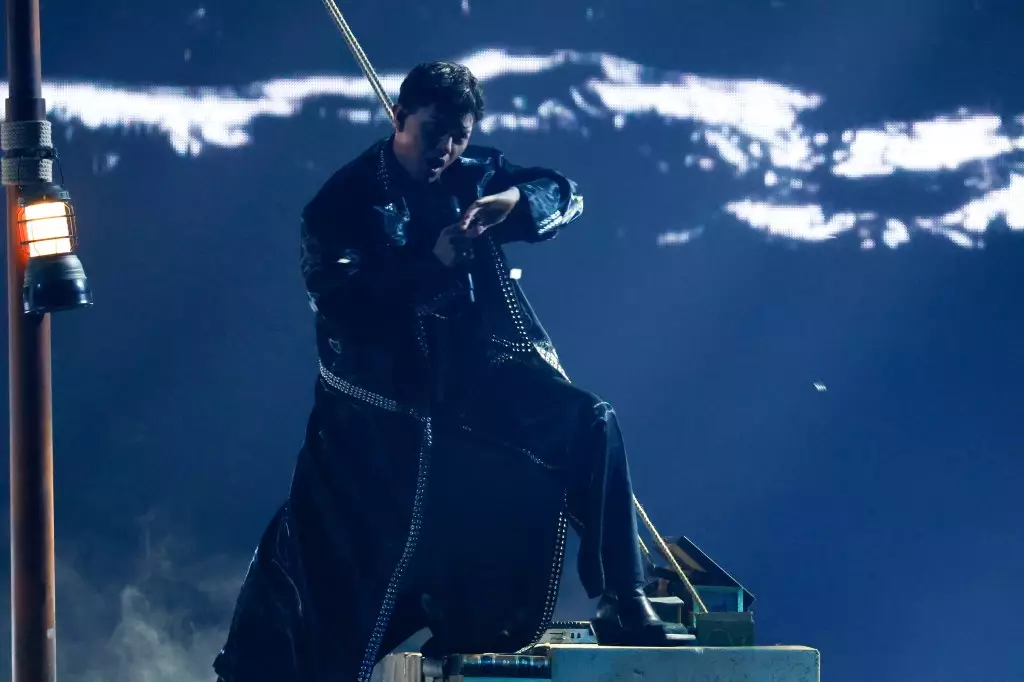The 69th edition of the Eurovision Song Contest concluded with a crescendo of emotions, marking a significant moment in music history as JJ of Austria took home the prestigious title. Hosted in the iconic St. Jakobshalle arena in Basel, Switzerland, the atmosphere was electric with excitement and anticipation. Fans from across the globe tuned in, eager to witness not just a competition, but a celebration of cultural diversity and musical creativity. JJ’s poignant performance of “Wasted Love,” infused with his captivating falsetto, became an anthem of heartbreak and resilience, resonating deeply with audiences during both his victory announcement and encore performance.
The contest, which has evolved into a global phenomenon since its inception in 1956, showcased myriad talents across 37 participating countries. JJ’s victory was not just a celebration of his artistry but a reflection of a communal experience shared by fans and participants alike—music becoming a unifying force transcending borders and cultures.
Stunning Upsets and Dramatic Votes
Throughout the evening, the stakes were high, with national jury voting producing dramatic twists. As votes trickled in, Austria found itself trading places with Switzerland in a nail-biting display of musical rivalry. The unexpected surge of support for Israel, which garnered 297 viewer votes in a last-minute rally, added layers to an already riveting competition. Ultimately, Austria emerged victorious by a margin of 79 points, proving that anticipation and passion can indeed shape the outcome of such a prominent event.
The narrative of the night was punctuated by surprises, such as Switzerland’s shocking zero points, reminding us that in Eurovision, the unpredictability is what keeps audiences engaged. As each country showcased extravagant performances complete with vibrant set designs and skilled choreography, it became evident that beyond the results, the real magic lay in the diversity of styles and interpretations brought forth by the participants.
Cultural Significance of Eurovision
Eurovision is more than a mere singing contest; it has evolved into a cultural event that serves as an arena for social issues and national pride. This year’s installment saw controversies, particularly surrounding Israel’s participation amidst global tensions. Calls from various factions, including a noteworthy open letter from over 70 previous contestants urging for a ban, raised ethical questions about representation and solidarity against sociopolitical injustices.
Director Martin Green’s perspective on inclusion, suggesting that the gathering of different nations through music may foster understanding, shows a romantic yet hopeful belief in music’s potential as a peacekeeper. While critics may argue this view oversimplifies complex geopolitical issues, it does spark vital conversations about the role of art in activism, adding another layer of complexity to Eurovision’s colorful tapestry.
A Return to Roots and Celebrating Legends
This edition also marked a homecoming, as the contest returned to Switzerland, where it originally began. An emotional message from Celine Dion, the 1988 winner, underscored the rich legacy of Eurovision. Dion’s own struggles with a rare neurological disorder added a sense of poignant authenticity to the celebration, connecting past champions with contemporary artists. The nostalgia surrounding her involvement serves as a powerful reminder of how music can create lasting bonds across generations, linking audiences through shared emotions over decades.
As the event transitions into future editions, reimagining the performances and narratives will be critical. Adapting to societal changes, fostering diversity of voices, and addressing ongoing dialogues about inclusivity will ensure that Eurovision remains a relevant and powerful platform for expression.
The grandeur of Eurovision, the pulsating rhythms, the breathtaking visuals, and, most importantly, the emotional connections forged among contestants and viewers spotlight the profound impact music can have on humanity. It is clear that events like Eurovision are not simply contests but reflections of our collective cultural psyche, revealing both our joys and struggles, an endless celebration of what unites us through song.


Leave a Reply